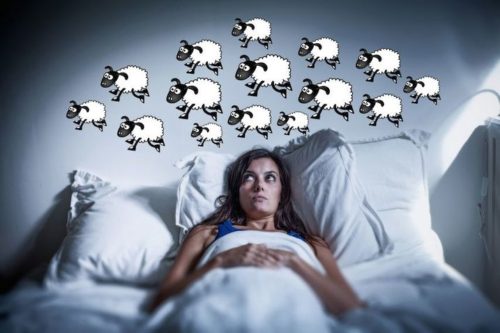Insomnia can be caused by psychiatric and medical conditions, unhealthy sleep habits, specific substances, and/or certain biological factors. Recently, researchers have begun to think about insomnia as a problem of your brain being unable to stop being awake (your brain has a sleep cycle and a wake cycle—when one is turned on the other is turned off—insomnia can be a problem with either part of this cycle: too much wake drive or too little sleep drive). It’s important to first understand what could be causing your sleep difficulties.
Medical Causes of Insomnia
There are many medical conditions (some mild and others more serious) that can lead to insomnia. In some cases, a medical condition itself causes insomnia, while in other cases, symptoms of the condition cause discomfort that can make it difficult for a person to sleep.
Examples of medical conditions that can cause insomnia are:
- Nasal/sinus allergies
- Gastrointestinal problems such as reflux
- Endocrine problems such as hyperthyroidism
- Arthritis
- Asthma
- Neurological conditions such as Parkinson’s disease
- Chronic pain
- Low back pain
Medications such as those taken for the common cold and nasal allergies, high blood pressure, heart disease, thyroid disease, birth control, asthma, and depression can also cause insomnia.
If you have trouble sleeping on a regular basis, it’s a good idea to review your health and think about whether any underlying medical issues or sleep disorders could be contributing to your sleep problems. In some cases, there are simple steps that can be taken to improve sleep (such as avoiding bright lighting while winding down and trying to limit possible distractions, such as a TV, computer, or pets). While in other cases, it’s important to talk to your doctor to figure out a course of action. You should not simply accept poor sleep as a way of life—talk to your doctor or a sleep specialist for help.
Insomnia & Depression
Insomnia can be caused by psychiatric conditions such as depression. Psychological struggles can make it hard to sleep, insomnia itself can bring on changes in mood, and shifts in hormones and physiology can lead to both psychiatric issues and insomnia at the same time.
Sleep problems may represent a symptom of depression, and the risk of severe insomnia is much higher in patients with major depressive disorders. Studies show that insomnia can also trigger or worsen depression.
It’s important to know that symptoms of depression (such as low energy, loss of interest or motivation, feelings of sadness or hopelessness) and insomnia can be linked, and one can make the other worse. The good news is that both are treatable regardless of which came first.
Insomnia & Lifestyle
Insomnia can be triggered or perpetuated by your behaviors and sleep patterns. Unhealthy lifestyles and sleep habits can create insomnia on their own (without any underlying psychiatric or medical problem), or they can make insomnia caused by another problem worse.
Examples of how specific lifestyles and sleep habits can lead to insomnia are:
- You work at home in the evenings.
- You take naps (even if they are short) in the afternoon.
- You sometimes sleep in later to make up for lost sleep.
- You are a shift worker (meaning that you work irregular hours).
It’s important to address insomnia instead of letting it become the norm. If lifestyle and unhealthy sleep habits are the cause of insomnia, there are cognitive behavioral techniques and sleep hygiene tips that can help. If you have tried to change your sleep behaviors and it hasn’t worked, it’s important to take this seriously and talk to your doctor.
Source: https://sleepfoundation.org/insomnia/content/what-causes-insomnia
If you or someone you love is living with Insomnia, consider learning more about Segal’s clinical study opportunities. Fill out the prescreen form below or call (877) 734-2588 for more information.


